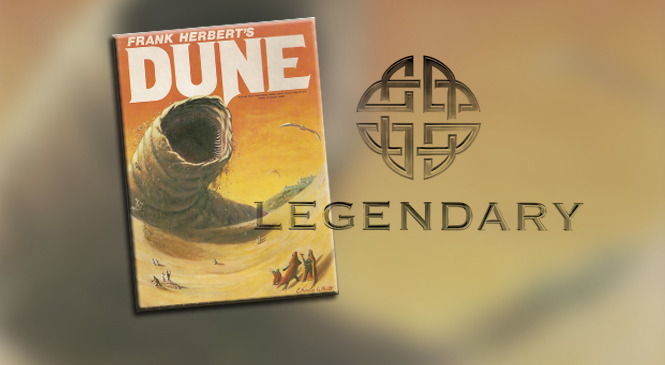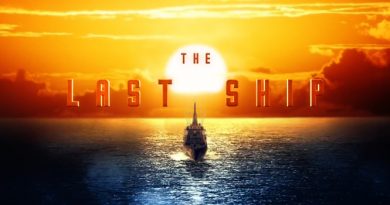ROUNDUP: What We Know So Far About DUNE

[guest post by Isa Gunther]
Dune has become one of the most talked-about events of the new movie season, with an abundance of casting announcements, plans, and discussion of the movie’s history and prospects. The upcoming film is the third attempt at translating Frank Herbert’s 412 page novel set in a dystopian future where spices and sandworms rule. The stakes will be high for this rendition, due to both the beloved status of the original novel, and the Oscar nomination (Sound) of the first movie adaptation in 1984.
The original novel was written in 1965 by Frank Herbert and won a Hugo Award (which it shared with This Immortal, written by Robert Zelazny). It was also the first recipient of the first Nebula Award in the Best Novel category.
Dune is also roughly contemporary with Robert Heinlien’s Stranger in a Strange Land (1961). Heinlien himself described the novel as “powerful, convincing, and most ingenious.” The wider critical reception was mostly positive, and the novel had sold more than twelve million copies as of the year 2000.
Since 1965, several attempts have been made to make a definitive film version, with the first attempt being in 1971, led by Arthur P. Jacobs as director. Jacobs, however, died before planning for the film could start, and the film was never started. In 1975, a potentially fourteen-hour long adaptation was planned, and boasted the involvement of painter Salvador Dali, writer Orson Welles, and actress Gloria Swanson, with Pink Floyd writing the music. H.R. Giger, who later won awards for his art design for the Alien franchise, was asked to be involved as well. The director, Alejandro Jodorowrsky, is on record as stating “I did not want to respect the novel, I wanted to recreate it.”
Despite the outward conflict, his would seem like an ideal team, one worthy of an epic story such as Dune. Funding, however, was lacking, and the film was never produced. Dune was given a budget of $9.5 million, two million of which was spent in pre-production alone. While the budget was ultimately raised to $15 million, by the time the project was dropped, only $10 million had been received. As a point of reference, some of Dune‘s contemporaries had more significant budgets: King Kong in 1976 had a budget of $26 million, Close Encounters of the Third Kind was $20 million, Jaws was $9 million, and Star Wars had a budget of $11 million. By comparison, the budget for Dune was not completely out of line, but is obvious that the quality of the film would suffer, especially with Dali’s salary.
The current incarnation has been a long time coming. First announced in 2016, and due out in November of 2020, this version was expected to take up to two years to film. With filming due to start in Spring of this year, one has to ask what changes have been made from the original concept and design. The director has noted, however, that the novel has been divided up into two films instead of one. It must also be noted that while he is a first-time producer, Brian Herbert is also the son of the author, so that should count in the current adaptation’s favor. The director assigned has been lauded as having a reputation of “excellent psychological understanding and visual flair.” Herbert’s co-author, Kevin J. Anderson, is also a consultant on the new film.
When rights to the film went public in 1982, Dino de Laurentis took the mantle of producing a Dune film, which was released in 1984. Unfortunately for de Laurentis, his film was a failure with the critics and the viewers, recouping only $30 million of its $40 million production costs at the box office. Despite the failure, this film version gathered quite the following, and remains the image most people have when they think of Dune films. A quirk of this particular film: it starred Patrick Stewart, known as Jean-Luc Picard and Professor X, in the role of Gurney Halleck. Stewart claimed in 2013, that he was “mistakenly cast,” and that “(director) David Lynch thought he had cast someone else.”
It can be said that much of the success of any Dune adaptation depends largely on the cast. In the case of the upcoming film, the casting has been the main source of speculation in the past couple of weeks, and with good reason. The cast has some of the most current names in Hollywood: Rebecca Ferguson (Little Match Girl, The Greatest Showman) is playing Lady Jessica. Josh Brolin, who played Cable in Deadpool 2 and Thanos in Avengers: Infinity War, is Gurney Halleck. Jason Momoa, most recently of Aquaman, rounds off an impressive cast list that spans multiple genres, styles, and levels of experience.
The main focus (for obvious reasons) is on the action/superhero genre, with three of the main actors (Momoa, Bautista, Skargarrd) each having played significant roles in very successful superhero franchise films. Other cast members have a more classical background, with credits in films such as No Country for Old Men and Love in the Time of Cholera, which creates one of the more experienced and diverse cast lists of any movie I have seen announced. The cast, it should be noted, have had more than enthusiastic responses. Javier Bardem (Pirates of the Caribbean: Dead Men Tell No Tales, Skyfall), who plays Stilgar, gave the response of “are you kidding? Yes, yes of course I’ll do it!” when offered his role. He also gave his shooting dates as May to June of this year, which contradicts the early Spring shooting announcements from previous weeks.
With the stellar cast and dedicated director, this film seems to have everything going in its favor. Frankly, it will need all the help it can get, given the failure of the 1984 film and the slightly less of a failure of the Syfy adaptation in 2000. There are notable signs that the studio, at least, has confidence in the current version: while everyone has been talking about the casting, Dune has quietly taken the spot of another heavily anticipated upcoming film. The Harry Potter-verse’s Fantastic Beasts 3 has been delayed until 2021, according to some theories.
Dune seems to be in a very unique position: while it has a legacy behind it, that legacy is not necessarily the best. While the original novel was beloved by many, the subsequent films were…a bit of a disappointment, to say the least. It’s obvious that it has a stellar cast as well as impeccable direction. This writer’s concern is the lack of experience from two of the Producers, namely the son and grand-daughter of the original novel’s writer. Take heart, Dune fans: This does not mean that the film will be a total disaster. Point of fact: neither of the other two movie adaptations had input from family members (other than Frank Herbert himself). Depending on the amount of influence the two producers in question have (which could range from “sure, you can do the thing” to “it will be my way or no way at all”), the quality of the rest of the producers, the actors, and the director may very well give us the definitive screen version that Dune both needs and deserves.
Isa Gunther has been a keen participant in and observer of fandom for over a decade. She has worked directly with talent, producers, and Showrunners as a liaison between them and the fans. She has moderated panels at several conventions including Dragon*Con, and has a passion for how fans and their shows interact.
![]()



